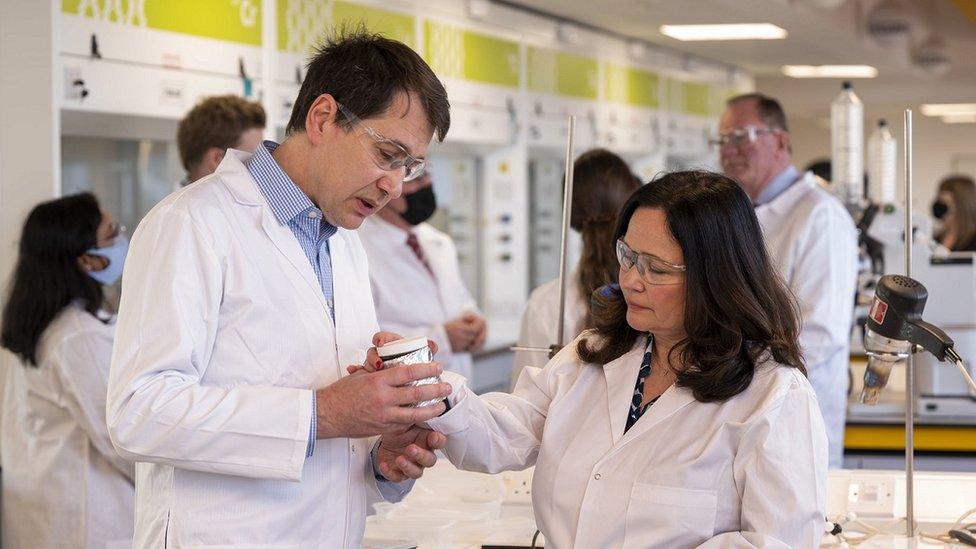Food allergies: New study launched to help protect people
- Published
- comments

Millions of people have an allergy to different types of food, including milk, peanuts and kiwi
A new trial has been set up with the aim of "making food allergies history".
The clinical study will investigate whether commonly available peanut and milk products, taken under medical supervision, can treat food allergies.
Millions of people in the UK have a food allergy, which is when the body's immune system reacts unusually to certain foods.
It is hoped the results could help the National Health Service (NHS) save money on allergy drugs.
Why has this food allergy study been launched?

Natasha Ednan-Laperouse died after an allergic reaction
The study has been launched by the parents of a teenager who died from an allergic reaction to a baguette.
The baguette Natasha bought from Pret a Manger contained an ingredient called sesame - something to which she was extremely allergic.
Sesame was not listed on the packet and a big investigation into Natasha's death found that the labelling wasn't adequate.
WATCH: Bethany's story - 'I lost my best friend Natasha when she had an allergic reaction' (March 2019)
Her parents - Tanya and Nadim - successfully campaigned to introduce Natasha's Law in October last year, which requires full ingredient and allergen labelling on all food made on site and pre-packed.
The couple have now set up a £2.2 million trial to investigate a treatment for food allergies.
It hopes to show that people with food allergies may no longer have to avoid foods with small amounts of things they're allergic to due to production.
They also may be able to eat popular food like cakes, curries and pizza.
How will the food allergy study work?

Natasha's parents said they were 'delighted' at the launch of the trial
The study will use 216 people between the ages of three and 23 with an allergy to cow's milk, and aged six to 23 with an allergy to peanuts.
Participants will take part in various tests for three years under strict medical supervision.
Natasha's father said the trial was "a major first step in our mission to make food allergies history", while her mother said they were determined that Natasha's death "should not be in vain".
If successful, Mr Ednan-Laperouse said it would eventually allow people "to control their own lives and stay allergy-safe using shop-bought foods rather than expensive pharmaceutical products".
WATCH: Callum's story - what it's like to live with 28 allergies (March 2019)
The trial has been funded by the Natasha Allergy Research Foundation, which has raised money from food businesses including Pret, Greggs, Tesco, Just Eat, Co-op, Morrisons, KFC, Sainsbury's, Costa, Burger King, Lidl and Leon.
It will be led by the University of Southampton and University Hospital Southampton NHS Foundation Trust.
They will partner with Imperial College London, the University Hospitals of Leicester NHS Trust, Newcastle University and Sheffield Children's Hospital.
- Published28 March 2019

- Published27 March 2019

- Published25 June 2024

